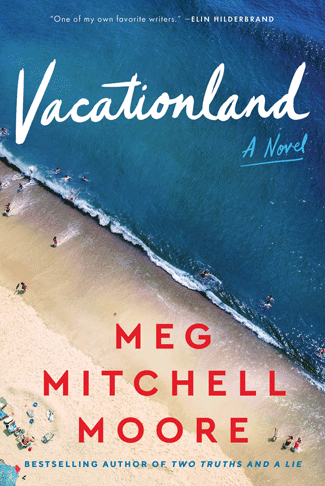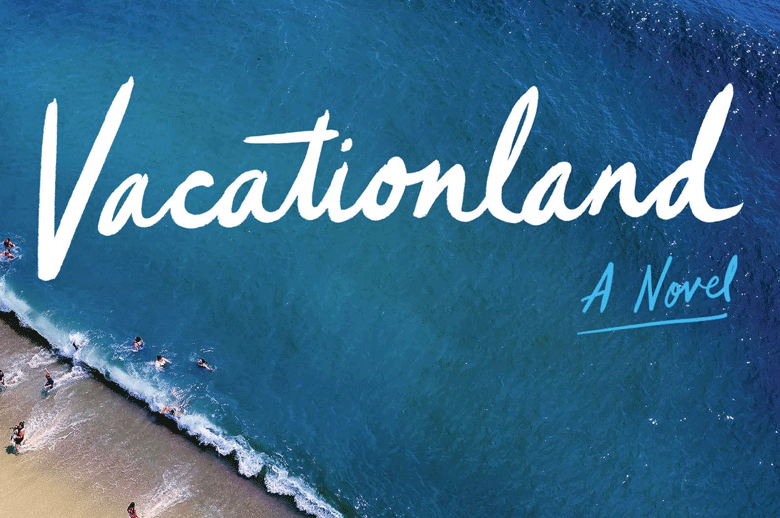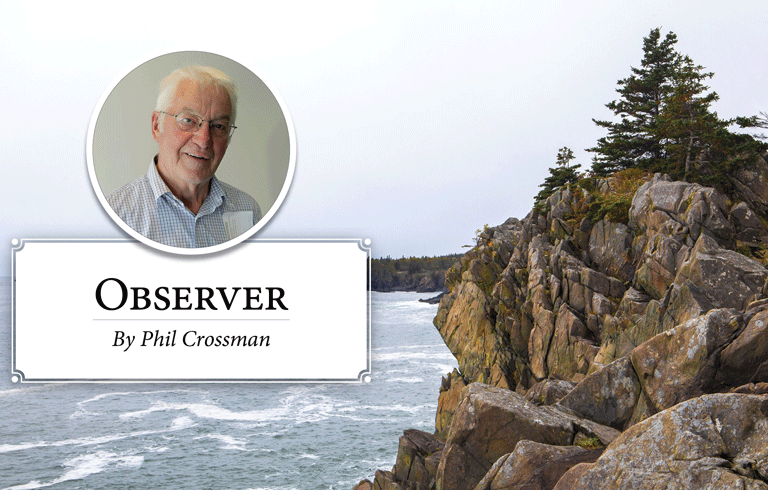Vacationland: A Novel
By Meg Mitchell Moore (2022)
Dear readers, a true confession: I’m late to this party, reading what are known as “beach books,” “escapist novels,” or “summer fiction.” These books have romance in them, but the focus seems as much on managing complex relationships with friends and family as any swashbuckling going on.
As New York Times reviewer Elisabeth Egan said about the multiple series written in this genre by the very popular and prolific Elin Hilderbrand, “They’re beach reads with an undertow—a confluence of frivolity… and gravity.”
All this serves as introduction to author Meg Mitchell Moore and her recent book, Vacationland: A Novel. (A recommendation by Hilderbrand features prominently on its cover.)
Have I stumbled into the sisterhood of summer novel reading and am on my way to becoming hooked?
I picked it up because of its title, and was delighted to find it was set in environs I know well, the rocky shoreline and islands of the Midcoast (even though the cover art of a wide sandy beach suggests elsewhere).

I can envision its beautiful old house (of course it has a name—“Ship’s View”) that is central to much of the action. Owned by successive generations in a family, their wealth allows not just having a seaside estate lived in only several months each year, but also affords the upkeep and staffing that keep it operational.
As I began to read Vacationland, I found it oddly soothing. Even when problems came up, the kinks could get worked out and fairly promptly. Sometimes all it took was a nice dinner in a nice restaurant, with expensive wine.
I was being lulled into a world where some bad things happened but could be easily remedied. I enjoyed my time visiting that world. An aging parent with serious health issues? Children needing babysitting while on vacation so Mom can get some writing done? No problem! It felt magical.
While some of the concerns of the family owning “Ships View” resonated with me, others—and I won’t spoil the book’s surprises—were bigger and more complex, requiring more than just a bottle of Henri Bourgeois Sancerre to resolve.
Have I stumbled into the sisterhood of summer novel reading and am on my way to becoming hooked? I can see how that can occur. Vacationland let me switch off the part of my brain that is too often analytical, data-driven, and reality-based.
Instead, I momentarily stopped asking questions. So what if many of the characters were “the one percent”? Why does life have to be so hard for so many others? What’s wrong with privilege and generational wealth, an access to resources on a completely different level than most of us are even aware of? Vacationland really was like sending my mind on a vacation and I momentarily enjoyed smelling their roses.
I read a lot of fiction set in Maine. I’m glad I’ve read Carolyn Chute’s books and gained insight into another region, political perspective, and lifestyle. Chute’s books (most famous: The Beans of Egypt, Maine) were not good at lulling me to sleep. Instead, I felt an existential challenge: there are lots of issues I wasn’t paying attention to, wasn’t aware of.
But Vacationland provided affirmation and assurance: the world holds surprises but problems work out, even disappear. It is nice to feel that is possible—a very human need. People vote in elections, donate to causes, attend religious services, and see therapists for some of that assurance.
I’m thinking “beach reads” offer more than I realized. At worst, I pictured them as a kind of voyeurism of an elite lifestyle (with some schadenfreude possibly sprinkled in). But they would seem to provide some relief from our own complex lives, offering distraction in literary fantasies.
One final caveat: Don’t misunderstand the “lived experience” suggested here and think you are getting insight into “real” Maine when reading Vacationland. As a kind of guide to the area, it may be most useful with its scattered mentions, recommendations of (real) restaurants, bars, shops, and bakeries the characters patronize, from Owls Head to Camden.
Cheers to the author for promoting local businesses. She represented in those, as one might wish she had done more of with her array of characters, an actually diverse range of Midcoast styles, settings, and financial brackets.
Tina Cohen is a therapist who spends part of the year on Vinalhaven.





